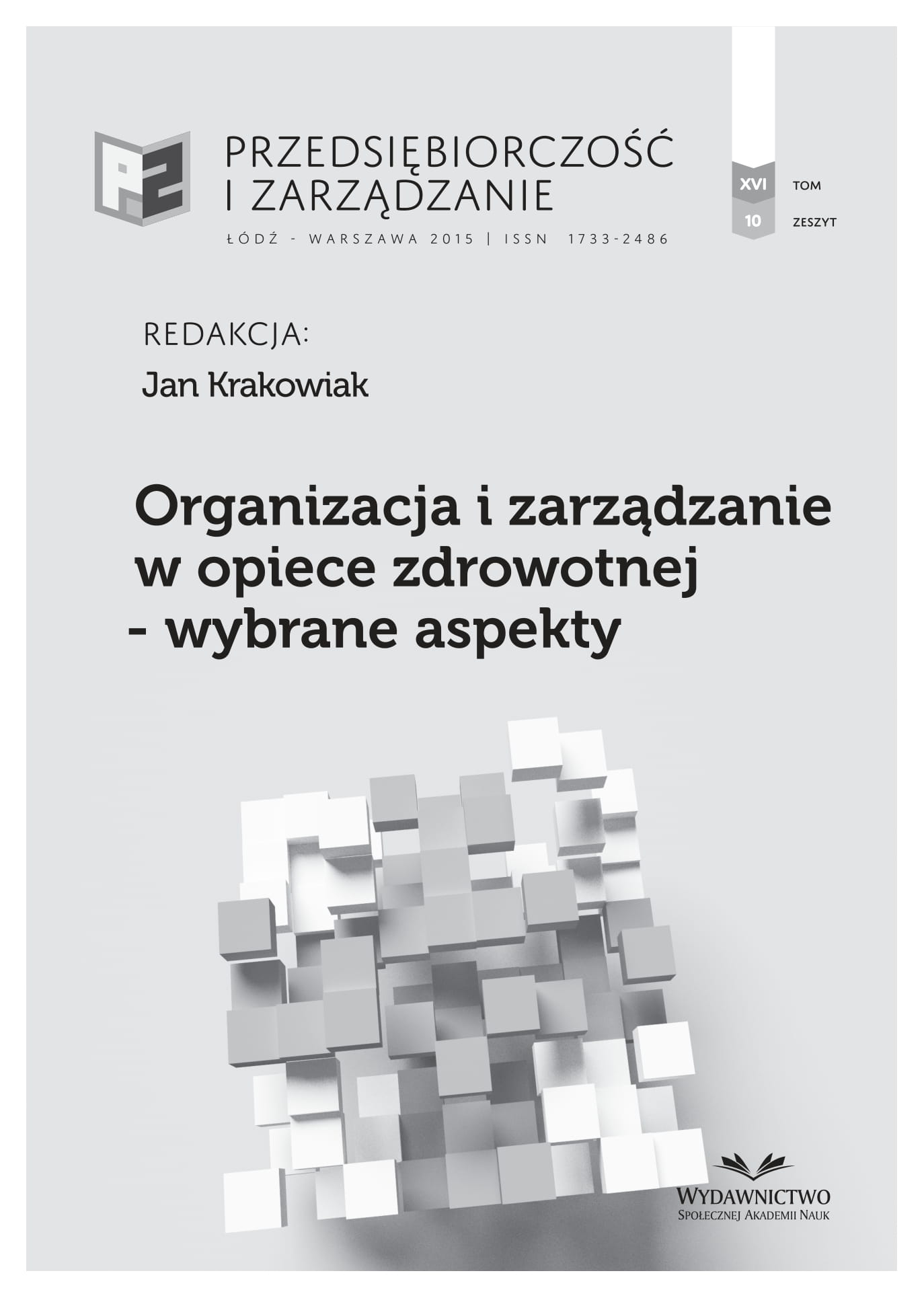Zarządzanie w opiece paliatywnej. Medyczne i pozamedyczne wyznaczniki roli opiekuna w zintegrowanym systemie opieki nad chorym u kresu życia
Management in palliative care. Medical and non-medical determinants of the care giver role in the integrated system of care for patients at the end of life
Author(s): Barbara Sikora, Joanna Sułkowska, Wojciech BieleckiSubject(s): Business Economy / Management, Health and medicine and law
Published by: Społeczna Akademia Nauk
Keywords: core attitude; palliative-hospice care; professionals; medical and non-medical aspects of care; personality and socio-environmental factors;
Summary/Abstract: Every person is different and has different needs. It is important to know what care and support is available and how to receive it. Care provided to the patient at the end of life should be based on the work of an interdisciplinary and multidisciplinary team formal and informal caregivers. From the patient’s caregiver attitude depends the attitude of the patient and the quality of the palliative‐hospice care provided to patients and their families in medical and nonmedical aspects. Care giver attitudes is the foundation of the desired model for patients at the end of his life and the basis for a safe system of health and social care in the institutional dimension. Integrated system of care at the patient at the end of his life must be based on personality traits, values, skills, knowledge, professional competencies and work experience in caregiving rather than place and organization of palliative‐hospice care. In this meaning quality care at the end of life is specialized care and support that recognizes the unique needs of a person who has a terminal condition, their family and carers
Journal: Przedsiębiorczość i Zarządzanie
- Issue Year: 16/2015
- Issue No: 10
- Page Range: 155-164
- Page Count: 10
- Language: Polish

